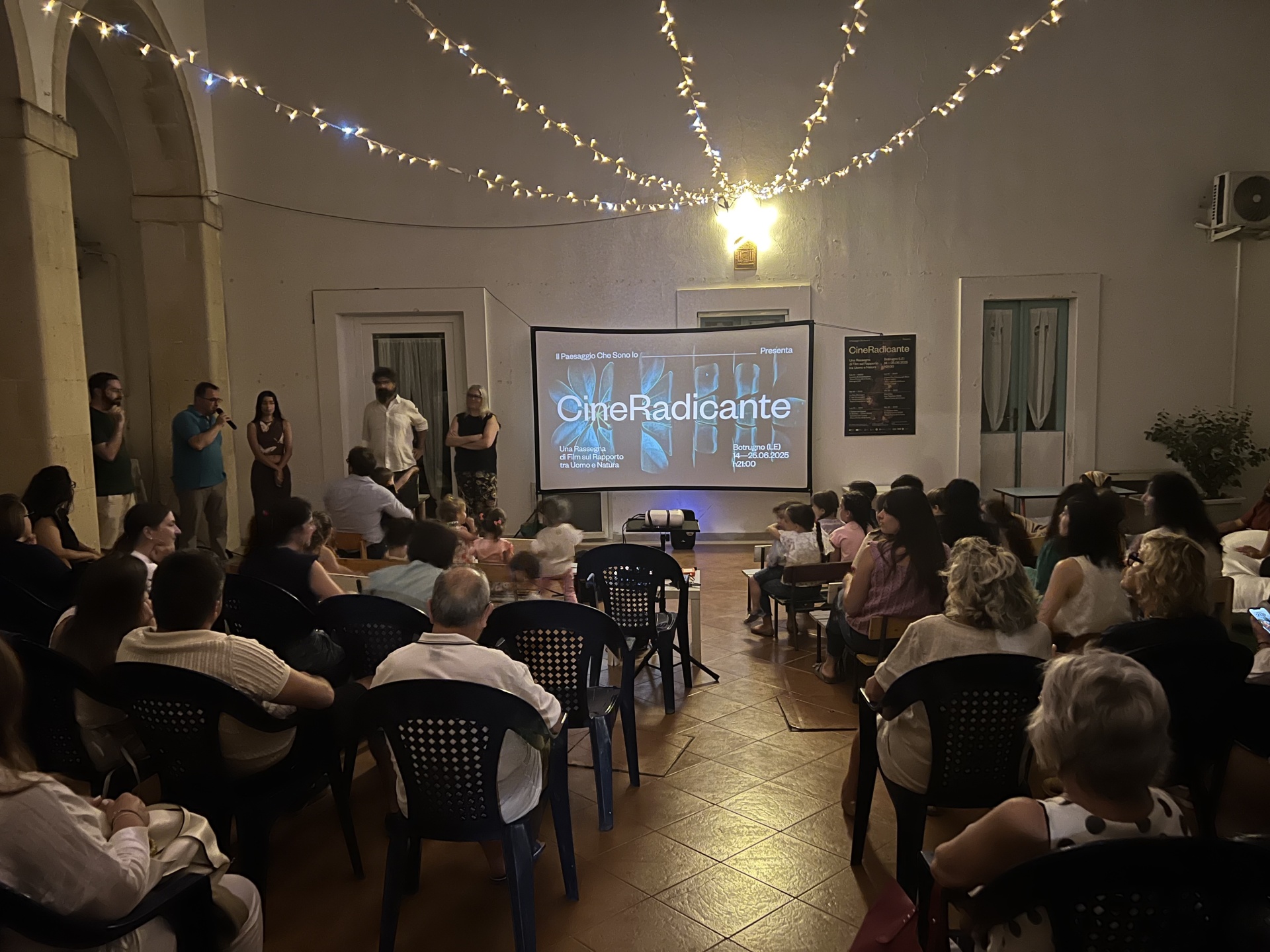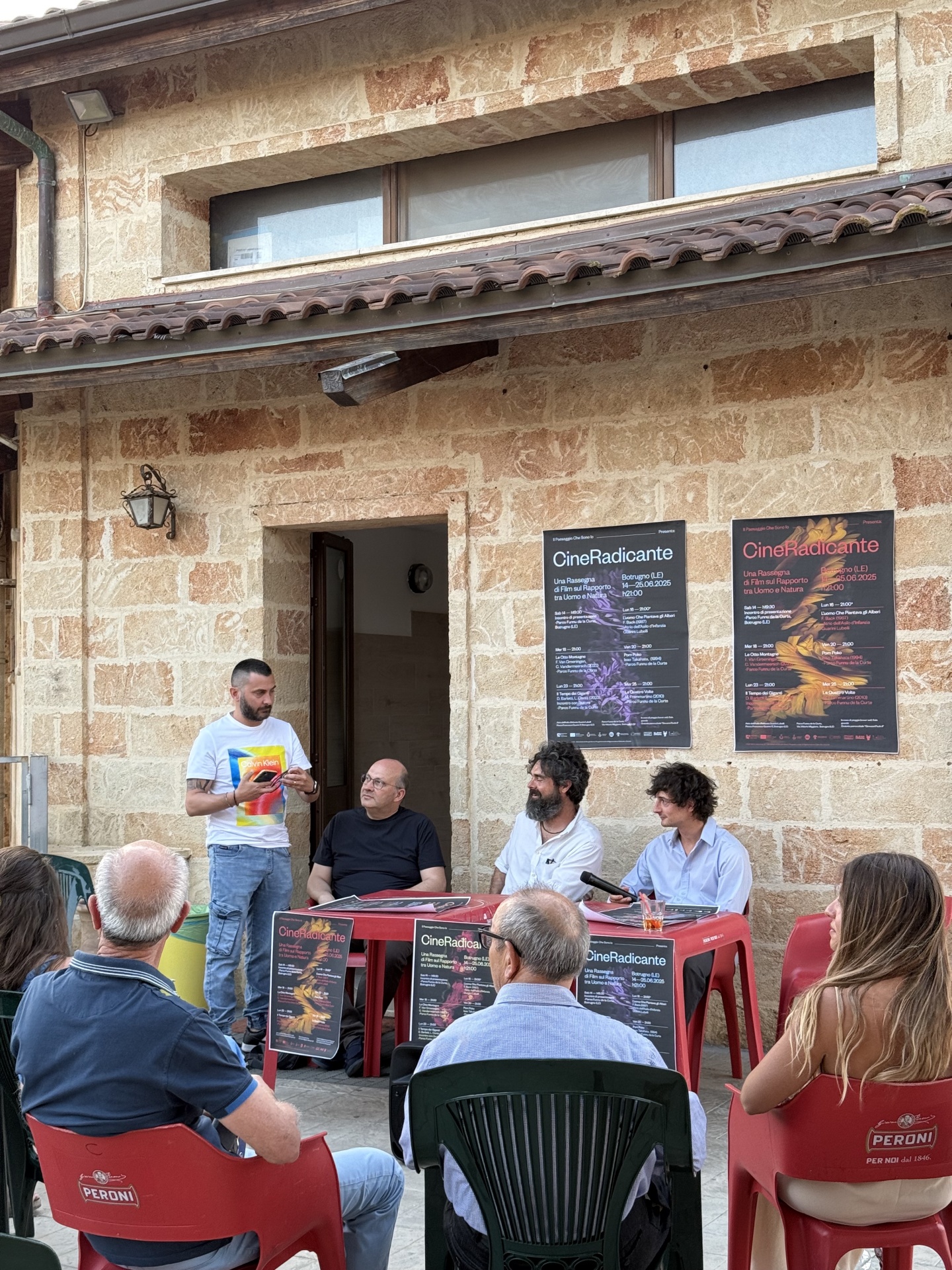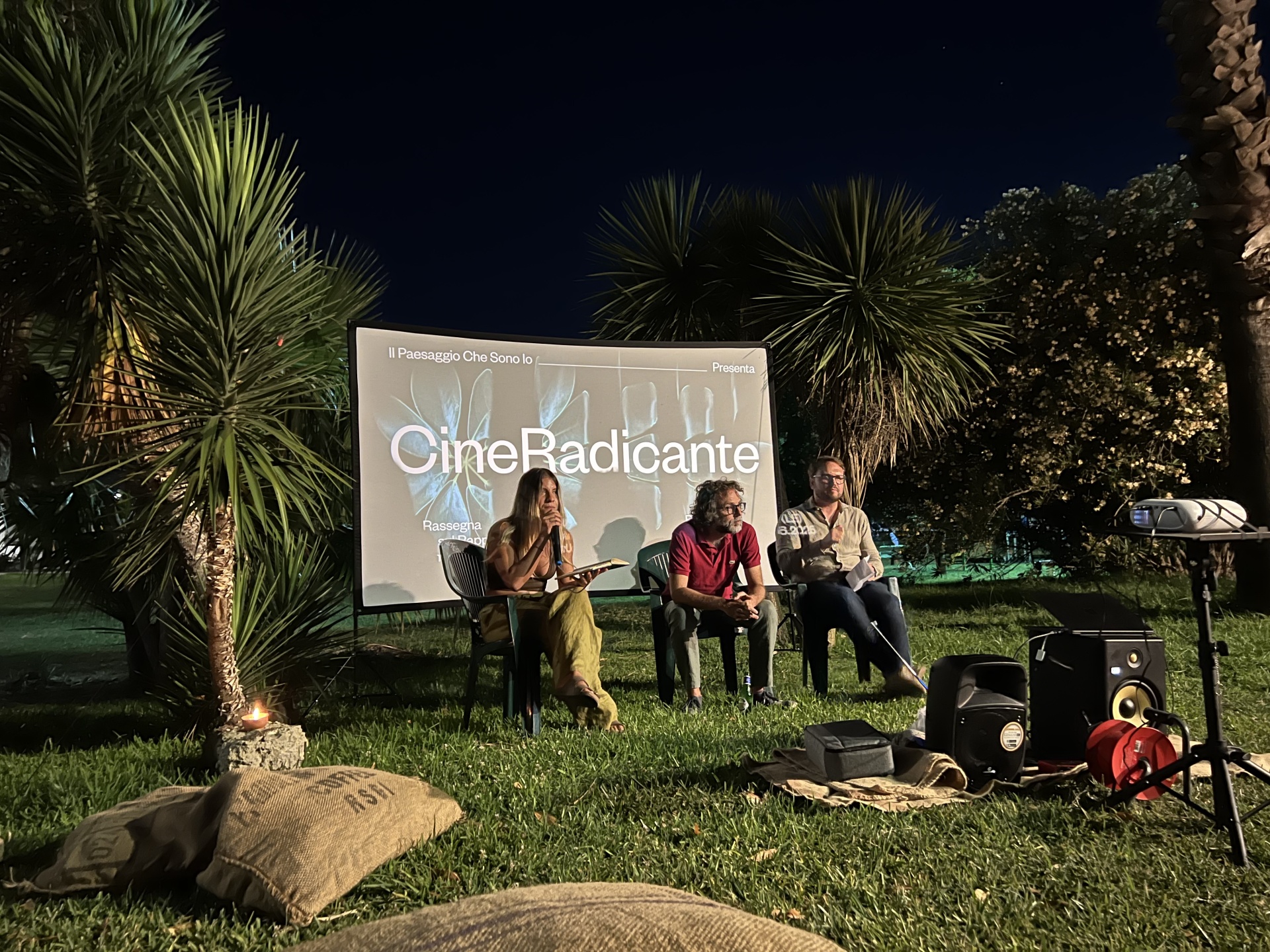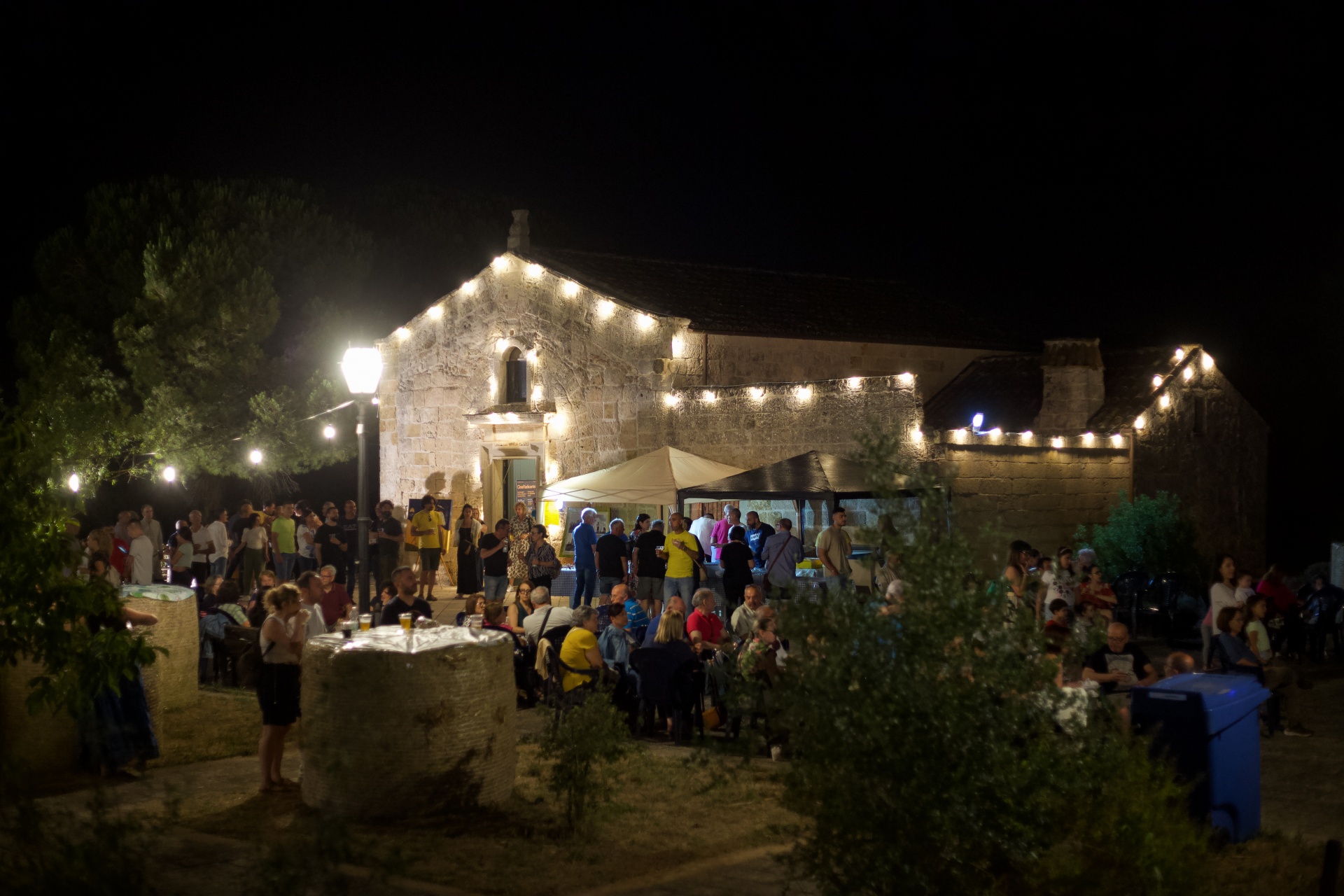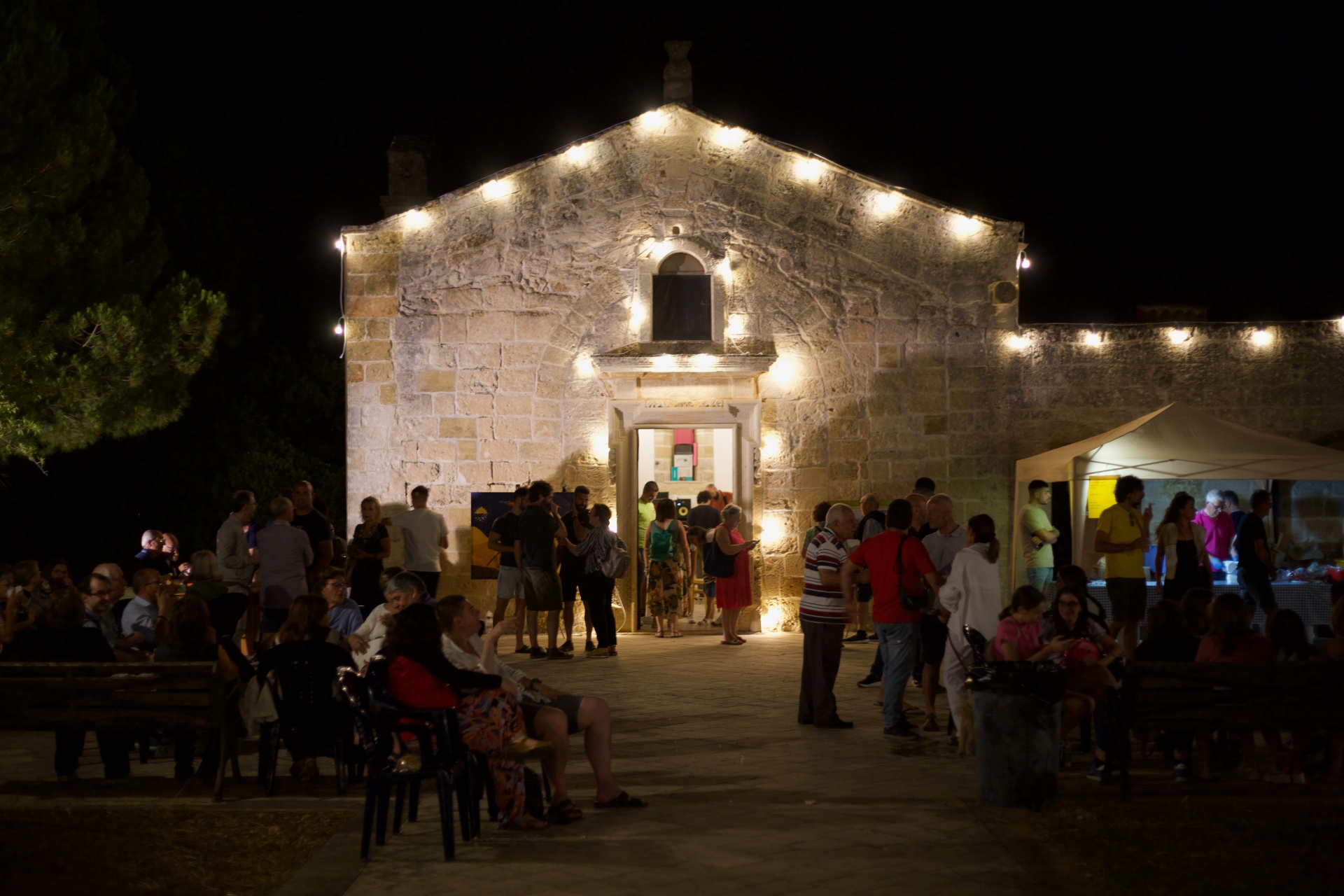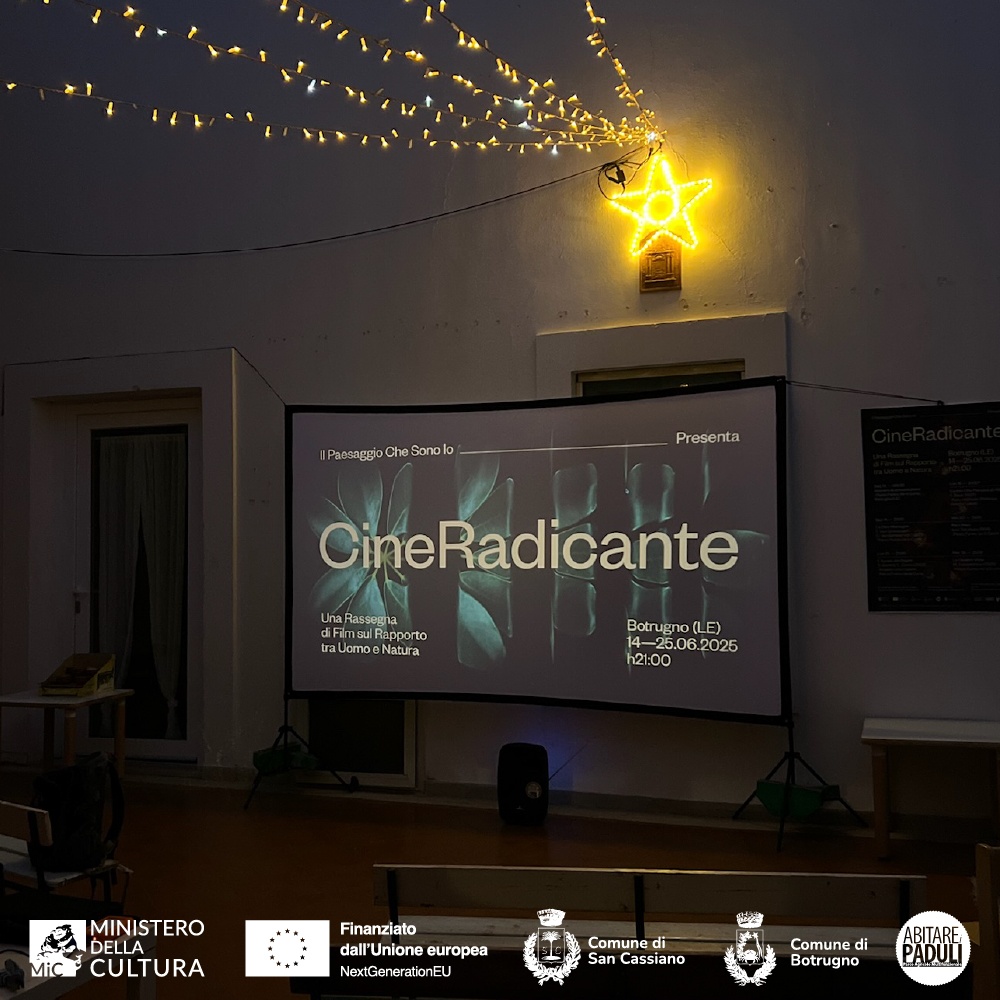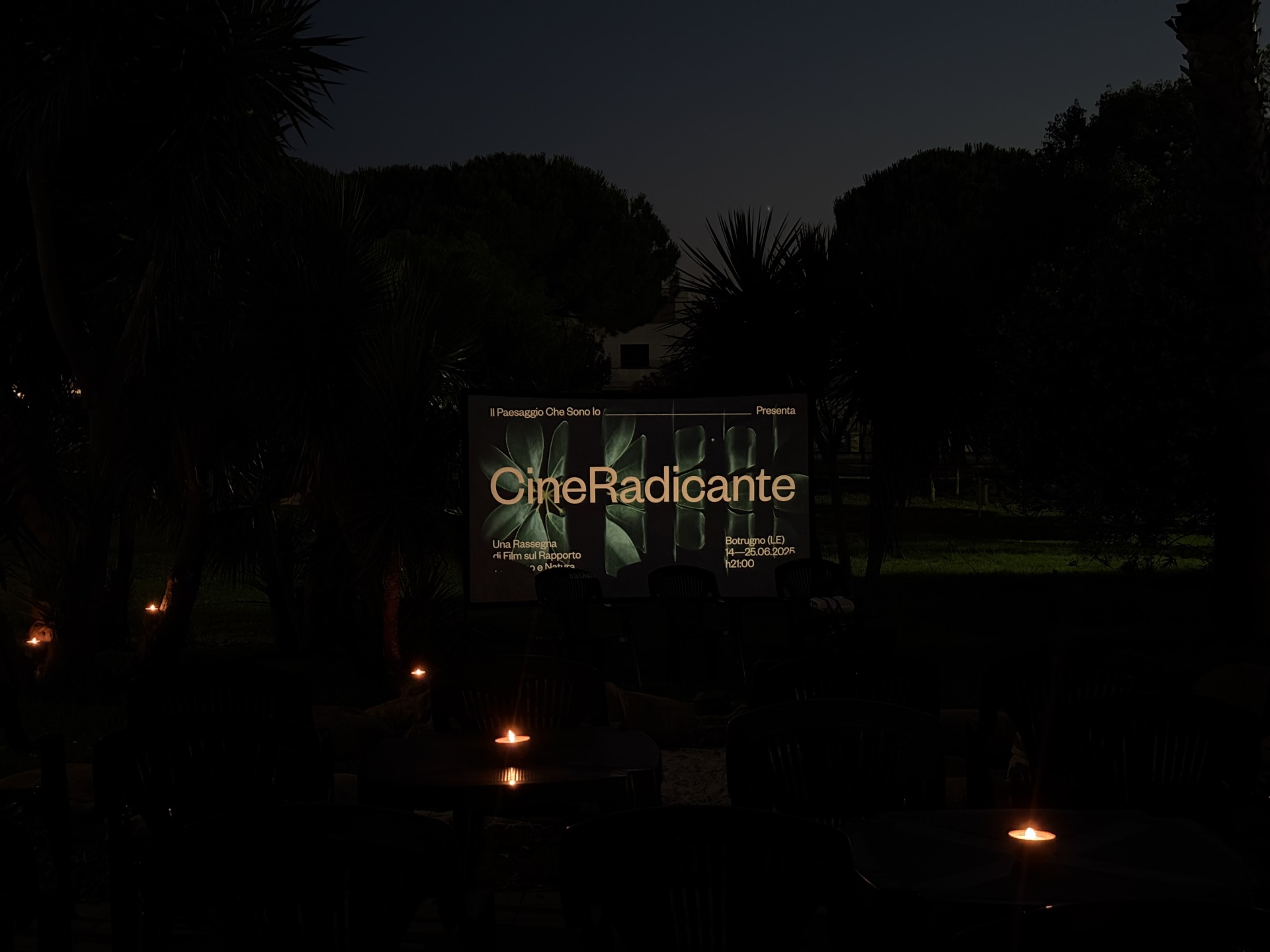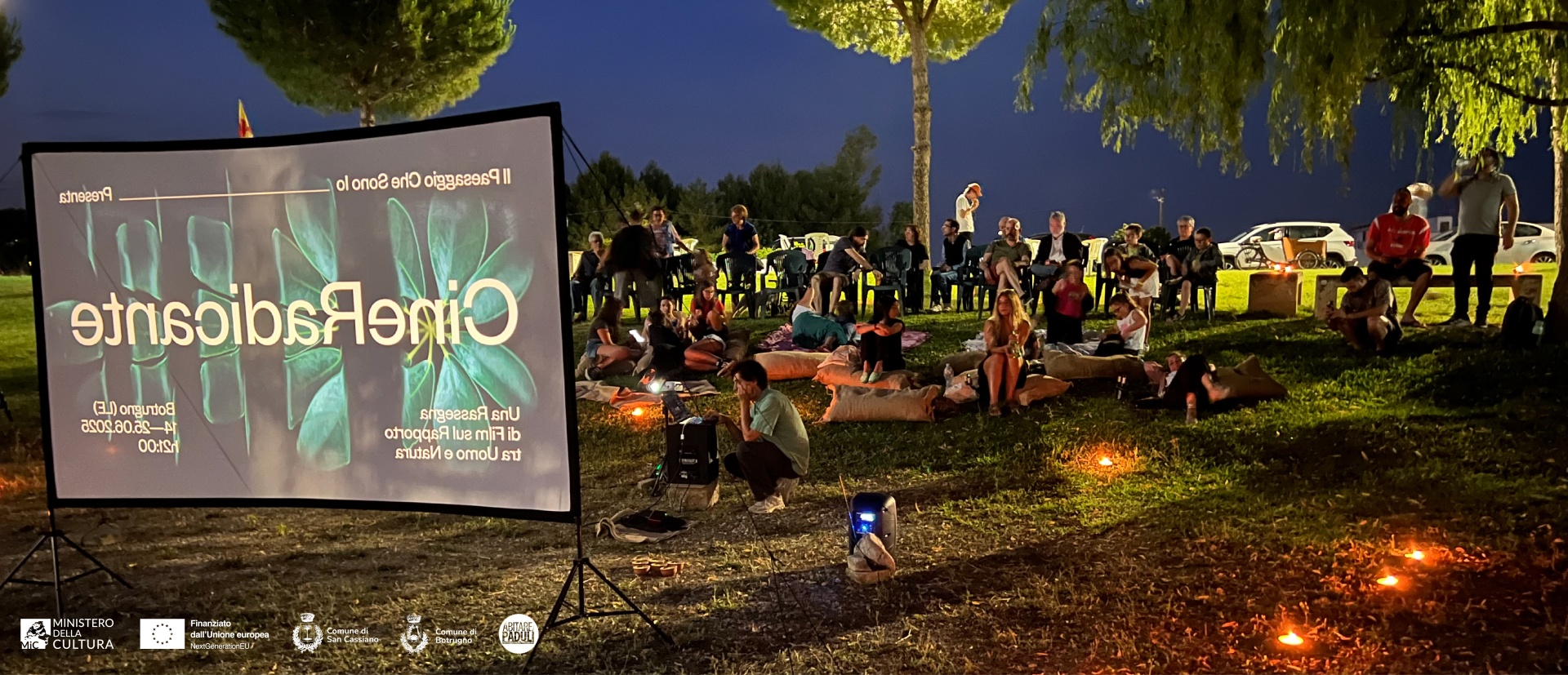
CineRadicante is a film forum conceived by the students and curated by the MADE Program faculty Francesca Gattello and Francesco Lucifora, together with Luciano Schito from the University of Salento. The traveling film series took place throughout the territory of Botrugno, actively involving the local community.
Through the language of cinema, CineRadicante fostered a collective reflection on the rural landscape, seen not merely as a backdrop, but as a living subject to be listened to, cared for, and reimagined together. The name evokes the idea of flexible rooting, like plants that adapt by seeking new grips in the soil. In this way, the project invited participants to observe their surroundings with greater attention, creativity, and responsibility.
Each screening became an opportunity for encounters between people and knowledge from diverse backgrounds, both local and international, rediscovering the landscape as a vital and transformative space. Screenings were held in significant local sites, transformed into open-air cinemas: the Guarini Lubelli kindergarten, the public park Funnu de la Curte, and the small rural church of San Solomo, bringing cinema to children, families, students, and visitors.
The series presented documentaries, animations, and feature films, notably including the screening of Il Tempo dei Giganti, followed by a discussion with the author Davide Barletti, offering an important moment of dialogue on the Salento landscape and the consequences of Xylella, a crisis that deeply affected the territory. Selected films also highlighted tensions between tradition and modernity, and the small everyday practices that contribute to the regeneration of rural spaces.
Among the featured titles were: The Man Who Planted Trees by Frédéric Back, The Eight Mountains by Felix Van Groeningen and Charlotte Vandermeersch, Pom Poko by Isao Takahata, Le Quattro Volte by Michelangelo Frammartino, and Il Tempo dei Giganti by Davide Barletti and Lorenzo Conte.
Each film offered a different perspective on the relationship between humans and nature, portraying changing landscapes, resilient communities, and reinvented agricultural practices. CineRadicante thus became an observatory of micro-practices that transform the territory: minimal gestures, temporary forms of dwelling, and signs of a new relationship with the land. Every screening was a moment of exchange and reflection, imagining together a more conscious future in harmony with the landscape.
This project was carried out within the framework of the PNRR – M1C3, Investment 2.1 “Attractiveness of Historic Villages,” as a Local Project for Cultural and Social Regeneration.
